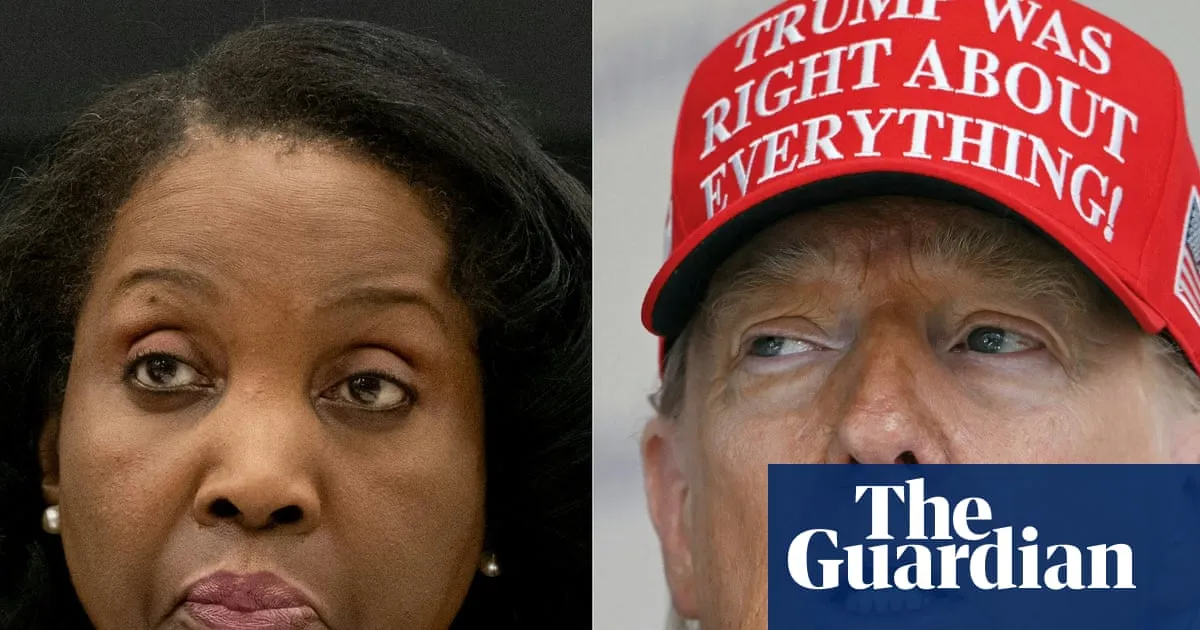
Donald Trump is currently engaged in a significant legal struggle to assert control over the Federal Reserve. Today marks a crucial moment as a governor of the central bank, Lisa Cook, seeks a temporary injunction against Trump’s extraordinary effort to remove her from her position. Cook filed a lawsuit against the US president on Thursday, with her legal team arguing that his actions are “unprecedented and illegal,” based on what they describe as “pretextual” allegations.
The case surrounding Cook’s dismissal is anticipated to eventually reach the Supreme Court. In the meantime, Cook is requesting a temporary restraining order to block Trump’s attempt to “immediately” dismiss her from the Fed’s board. A hearing for this motion is scheduled for 10 AM in Washington, highlighting the urgency of the situation. This case has been assigned to US District Judge Jia Cobb, who is an appointee of President Joe Biden.
In a letter sent to Cook on Monday, Trump stated that he was removing her from her role “effective immediately.” This decision was based on allegations made by one of his allies, claiming that Cook had obtained a mortgage on a second home that she inaccurately described as her primary residence. This move is part of a broader narrative, as Trump has spent months criticizing the Federal Reserve, where most policymakers—including Cook—have resisted his calls for interest rate cuts.
Trump’s efforts to dismiss Cook raise significant questions about the future independence of the Federal Reserve. He has expressed intentions to swiftly build “a majority” on the central bank’s board, which could undermine its longstanding autonomy from political influence. Dismissing Cook, whose term is not set to expire until 2038, would allow Trump to nominate a successor, further consolidating his influence over the central bank.
In Cook’s defense, her lawyers assert that the president has “no authority” to terminate her position. They argue that “an unsubstantiated allegation about private mortgage applications submitted by Governor Cook prior to her Senate confirmation is not cause.” Furthermore, they emphasize that Trump’s letter, which purported to fire Cook, failed to provide legitimate grounds for her removal from the board of governors.
In response to the unfolding situation, the White House claimed on Thursday that Cook had been “credibly accused of lying” by the administration. However, these accusations remain unverified, and Cook’s legal team contends that neither Trump nor his officials have clearly stated that any mistakes in her mortgage documentation were intentional.
This legal battle over the Federal Reserve not only highlights the tensions between the Trump administration and the central bank but also raises broader questions about the influence of politics on financial institutions. As the case progresses, all eyes will be on the courtroom developments and the implications for the future of the Federal Reserve.